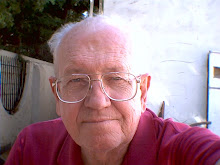(Taken from Chapter 9, Bye-Bye Sweet Liberty)
(The points presented in this chapter are very important; please pay attention.)
Before learning about politics, we must learn what a state is.
A State, What is it?
A state is the largest political body in which humans live. Russia is a state. The peoples Republic of China is a state. France is a state. Maine is not a state, but the federation of all 50 “states,” called the United States of America is a state. The primary function of a state is to protect its citizens against domination by other states. A farmer on the coast of North Carolina can rest easy, assured that an invading pirate ship would be met by the full force of the US Army, the US Navy, and the North Carolina National Guard. Ultimately, It is our Armed Services that allow us to live safe from outside intrusion. When armed conflicts occur, the number of troops each side can muster is of primary importance. The side with the greatest number has the advantage. Because of this, large states grow and small states disappear.
A State, Who is in charge?
Going back as far as ancient Greece, Rome and Egypt, it was a monarch. Monarchs were also the preferred form of leader among the indigenous peoples of North, Central and South America..
A State, how is the leader chosen?
A monarchy usually has rules of succession that dictate choices among the closest blood relations to the current monarch. When a state is at war, often the selection will favor a strong military leader, even ignoring rules of succession.
Constitutions
Answers to the questions above usually serve to define the state. The elements that compose the State, define how leaders are chosen, the authority possessed by the leaders, how funds for state business are acquired, these are defined by a state’s Constitution. The United States’Constitution is written. England’s Constitution is not written, but is widely understood, and is passed on by verbal tradition.
Politics
The structure of power at all levels within a state is defined by the constitution. Assignment of personnel within the structure is often decided by those in the most powerful positions. In a
healthy republic, representatives of groups of citizens are selected by popular vote to fill the highest levels in the power structure. These high-power representatives are free to fill lower positions with people of their choice. The entire process of filling positions within a structure that has access to legal armed force is called politics. In most modern states, military power (including police power) is controlled by politicians having positions in the power structure.
When a politician commits a crime, a tremendous dilemma crops up, because, within his rights, he might be allowed to call armed officers of the Law to keep him from being arrested by other armed officers of the Law.
Voting for politicians is serious stuff. An elected official has more power than most people realize.
Economics and Politics differ greatly. That is where we go in the next Chapter(Chapter 10, Economics versus Politics).
Continue your education by going to ECONOMICS versus POLITICS.[Click the link below]
Saturday, February 28, 2009
Subscribe to:
Comments (Atom)
